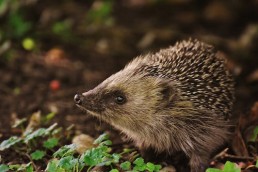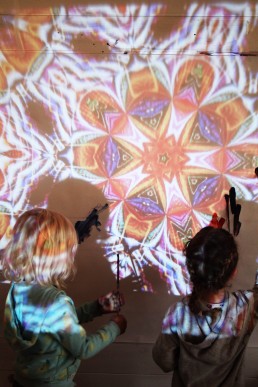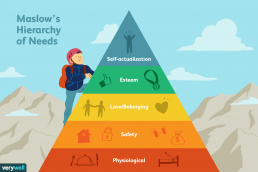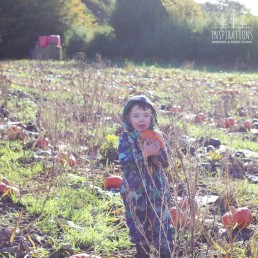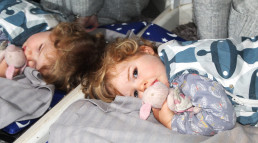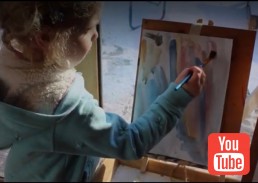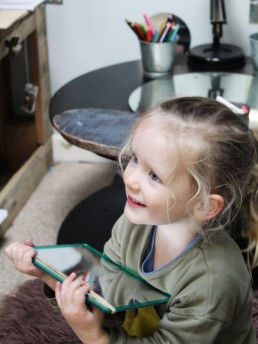Looking Out For Forest Friends
Rounded body, short dark yellow-tipped spines and a short tail – is it a Gruffalo I hear you ask? No, it's the Hedgehog!
Hedgehogs are a picture of cuteness and are largely widespread throughout Britain. In the summer time they spend most of their days sheltering in moss, grass, leaves and hedges. In fact, the reason they are called 'Hedge' hogs is because of where they build and nestle in hedges, bushes and shrubs. The ‘hog’ part comes from the small snorting and grunting sounds they make, which is similar to a pig.
There are a few facts about Hedgehogs, for example;
- They are nocturnal
- They can hibernate
- There are 15 species of hedgehog
- They have 5000 spikes
- Their snout is long to help them forage for food, such as worms, insects and berries
- They are lactose intolerant
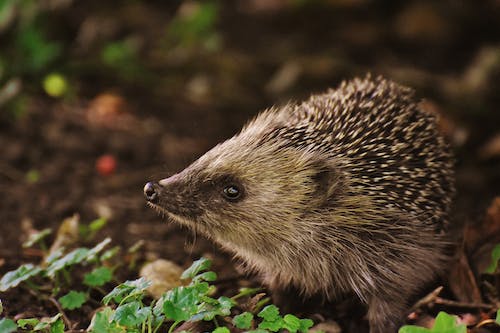 Hedgehogs tend to forage in the evening and can travel for up to 2 miles, that’s a long way for little legs! They are known for being a Gardeners’ Friend and have earned this reputation because of their eating habits. Not only do they enjoy berries and fruit but the staple of their diet is made up from pests that are common in our back gardens such as beetles and caterpillars. This helps preserve the
Hedgehogs tend to forage in the evening and can travel for up to 2 miles, that’s a long way for little legs! They are known for being a Gardeners’ Friend and have earned this reputation because of their eating habits. Not only do they enjoy berries and fruit but the staple of their diet is made up from pests that are common in our back gardens such as beetles and caterpillars. This helps preserve the
fruit and vegetables you may have growing in your gardens.
Vulnerable to Extinction
Sadly, Hedgehogs are at risk, so much so that they are classified as ‘vulnerable to extinction’ and are on Britain’s red list for mammals due to the sharp rate of it’s decline. Hedgehogs are one of the oldest mammals on the planet. They are Britain’s only spined mammal and a national favourite. But their numbers have fallen from over 30 million in the 1950s to less than one million today. More and more is being done to stop these spiky little creatures from becoming extinct. Recently The British Hedgehog Preservation Society ran a successful campaign to ensure that all new housing developments include hedgehog highways. This will help to give hogs the room they need to roam and find food and suitable mates. https://www.countryliving.com/uk/wildlife/countryside/a28604641/hedgehogs-building-rules
A garden can be a haven for Hedgehogs but decking, astroturf, gravel and paving, as well as neat cut back grass with no trees or bushes aren’t much use to our prickly friends. Such things as pesticides not only kill the bugs that they eat but also get into the Hedgehogs diet, causing them to become ill. Therefore, the introduction of Wildlife gardening is helping to maintain these habitable havens and is aimed at creating an environment that is attractive to various forms of wildlife such as Hedgehogs. The move towards this form of gardening and the great work done by the Hedgehog Street campaign has shown that even though there is still a decline in the countryside, in urban and suburban areas things are looking better. Thankfully this means that more and more gardens up and down the country are becoming hedgehog friendly. Is your garden Hedgehog friendly? There is one way you can help...
Get your own hedgehog highway!
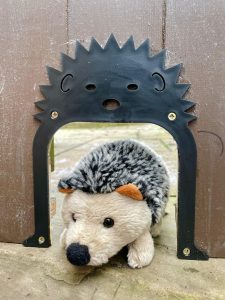
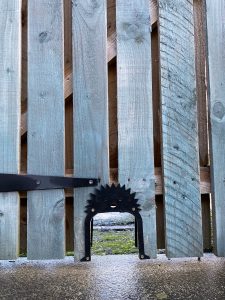
Let's open up our gardens again, to get your own Hedgehog Highway contact Handyman Ian local to the area. He will cut a hole in your fencing and attach a hedgehog frame just like this one for £12
Email: https://www.facebook.com/handyian84 Whatsapp:+44 7740 328619
Get involved in making your garden hedgehog friendly and perhaps we can work together to save this species from extinction.
- Ashleigh
Exploring Pattern in the Art Studio
This week in the Art Studio has had a child led focus on pattern, but how did we get there? Last month we found a butterfly on the decking that was no longer alive. The children shared ideas on what might have 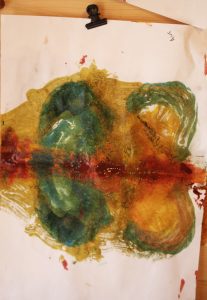 happened? 'It got stung by a wasp!' 'It was eaten by a fox!'
happened? 'It got stung by a wasp!' 'It was eaten by a fox!'
Whilst they came to their own conclusions we brought the butterfly into the Art Studio for a close examination. Out came all the research books as we identified it as a 'Speckled Wood'. The butterfly inspired some drawings, which lead onto paintings with particular focus on the wing patterns and colours.
This naturally lead onto art work and printing techniques by folding the paper to make prints of butterfly wings as we learnt a new word 'Symmetrical'. Their symmetrical patterns progressed and this interest strayed away from the butterfly and lead onto pattern within art using various techniques.
This week we took our pattern painting onto a large scale with the added media of light and shadow as a kaleidoscope was projected onto the wall. We also used clay to create pattern by imprinting beads and various other loose parts.
The Art Studio as well as being a Reggio Inspired place to explore project based learning is also a space for our children to explore new surroundings and new friendships in smaller groups. For some it is their space to build with the magnets, notice new books, experiment with different art materials and explore shadows on the projector. It is a space that can be quiet, a space that can be loud, where we play instruments and sing with the ukulele, and a space with provocations, a space that is rearranged whenever new interests emerge. With between 6 and 8 children in each session it can be the perfect opportunity to hear the children's voices which guides our planning.
Here's some of this weeks photos from the Art Studio.
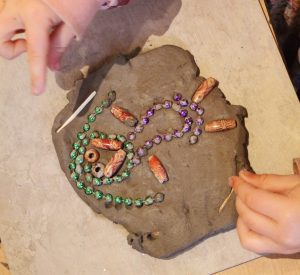
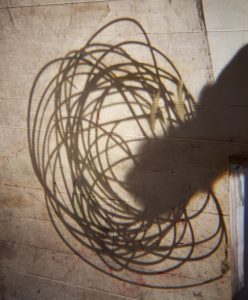
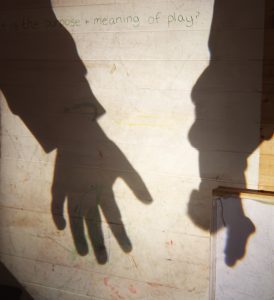
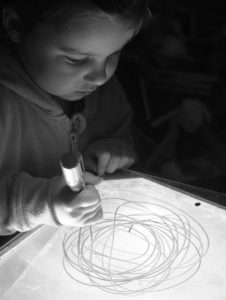
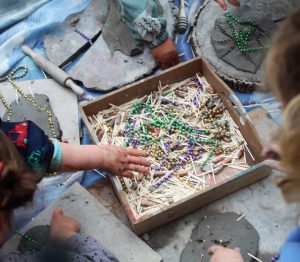
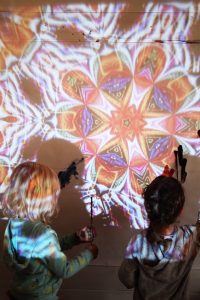
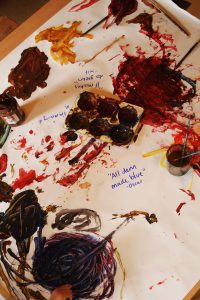
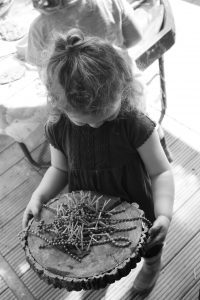
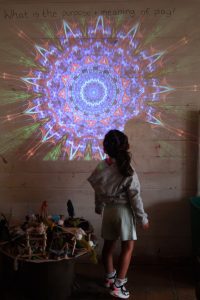
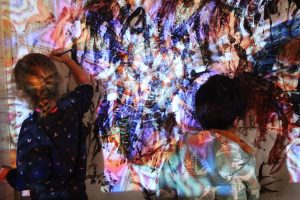
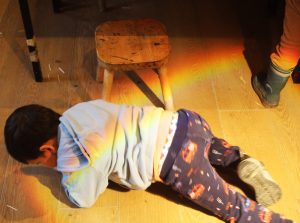
Transitions Within Nursery
Once that blissful Maternity leave you have just shared with your little one draws nearer to an end and the dreaded time comes to go back to work, beginning the transition process in to a Nursery, childminder or Nanny starts and it can be a big and daunting step for you and your little one. All sorts of emotions will come with this as you will no doubt be worried, sad, nervous, and anxious about leaving your child for the first time. However please be assured the settling in process supports you and your child to overcome these negative emotions and instead, make you feel happy, excited and reassured about this next milestone.
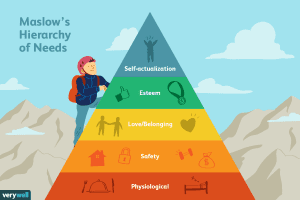 Young children starting a Nursery need support to enable them to adjust to a temporary separation from their family. Maslow’s Hierarchy of Needs demonstrates that children need to feel as safe, comfortable, and secure within the environment before they are able to move on to any other learning opportunities. Building a close bond with their Key Worker and the other Educators is particularly important so that they know they have someone to comfort them and make them smile when they are feeling a little sad. We aim to provide as much continuity and care as possible.
Young children starting a Nursery need support to enable them to adjust to a temporary separation from their family. Maslow’s Hierarchy of Needs demonstrates that children need to feel as safe, comfortable, and secure within the environment before they are able to move on to any other learning opportunities. Building a close bond with their Key Worker and the other Educators is particularly important so that they know they have someone to comfort them and make them smile when they are feeling a little sad. We aim to provide as much continuity and care as possible.
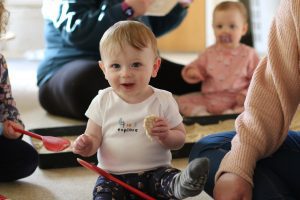 As children develop from birth throughout childhood this change involves a process for them to adapt their thoughts, feelings and behaviours to meet new expectations and even though this blog focuses on Transitions in to Nursery and between room bases, by the time they reach school age, they will more than likely of experienced more than just these transitions in their life. Depending on circumstances the child may be forced to attend more than one setting during the week and one of the big transitions they face is school. Next weeks blog will focus on transitions to school.
As children develop from birth throughout childhood this change involves a process for them to adapt their thoughts, feelings and behaviours to meet new expectations and even though this blog focuses on Transitions in to Nursery and between room bases, by the time they reach school age, they will more than likely of experienced more than just these transitions in their life. Depending on circumstances the child may be forced to attend more than one setting during the week and one of the big transitions they face is school. Next weeks blog will focus on transitions to school.
The Transition to Nursery is like a journey and takes time, preparation and planning. It is important to us that Parents and the Educators work together to make the process as smooth as possible.
The Procedure at Inspirations is as follows-
Under 2's
- A phone call is made to parents, by either the room leader or the Deputy room leader 4-6 weeks prior to the start date and a discussion is had to book in the home visit and settling in visits. It is also a chance to have a chat and ask any questions you may feel unsure about.
- Home visit 3-6 weeks prior to start date (applies to 2-year funded children also)
- Transition visits in to setting 1-2 weeks leading up to first day (1 x 1 hour with Parent, 1 x 1 hour on own and 2 x long visit (3-4 hours) over sleep and lunch or lunch and sleep depending on routine at time)
During these periods of settling in, we aim to share information and build up a picture of the child’s starting points, give a parent pack which will show pictures of the room they will start in along with pictures of the staff (identifying key worker and what their role is) and an overview of the daily routine. We give a parent handbook, check through paper work and talk about/document the routine they are currently following at home. We introduce their Key Worker and discuss any other information you feel relevant. It is also chance to speak about any allergies or dietary requirements
From 2-3 Years and Older
- A phone call is made to parents, by either the Room Leader or the Deputy 4-6 weeks prior to the start date and a discussion is had to book in the settling in visits. It is also a chance to have a chat and ask any questions you may feel unsure about.
- Transition visits in to setting 1-2 weeks leading up to first day (1 x 1 hour with Parent, 1 x 1 hour on own and 1 x long visit (3-4 hours) over lunch or tea
During these periods of settling in, we aim to share information and build up a picture of the child’s starting points, give a parent handbook, check through paper work and talk about, document the routine they are currently following at home. Introduce Key Worker and discuss any other information you feel relevant. It is also chance to speak about any allergies/dietary requirements
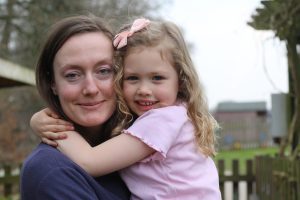 The procedure for room transitions is the same however, the conversations and planning happens between the Room Leaders, and the Key Worker attends the first visit with them. The Key Worker completes a transition form and takes this through on the first visit, this indicates starting points for the child and any other information that needs to be passed on.
The procedure for room transitions is the same however, the conversations and planning happens between the Room Leaders, and the Key Worker attends the first visit with them. The Key Worker completes a transition form and takes this through on the first visit, this indicates starting points for the child and any other information that needs to be passed on.
The impact of our procedures has shown us that the time given for them to settle in before starting is more than sufficient and during this time they have began to familiarise themselves with the environment and the Educators, in particular their new Key worker. However, if there is a chance it hasn’t gone as planned, we can offer additional support by allowing more settling in visits.
All this ground work to ensure smooth transitions helps create the right environment for your children to become confident little leaners here at Inspirations.
“If children feel safe, they can take risks, ask questions, make mistakes, learn to trust, share their feelings, and grow.” ~ Alfie Kohn
-Ashleigh
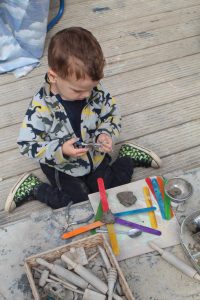
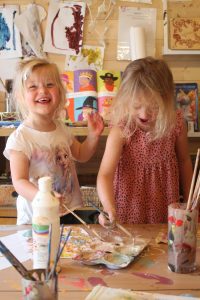
Pumpkin Picking
It's that's time of year again...
The time that nature hands us natural learning supplies by the plenty. Conkers, acorns and fallen leaves are brought into our learning environment to inspire creativity, discussions, and all kinds of learning through play.
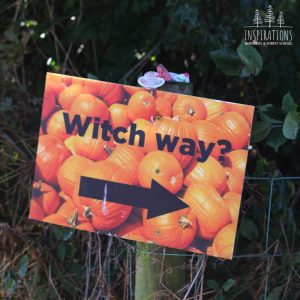
In the Art Studio, the children are inspired by Leaf Man, making their own leaf people and arrangements on the Lightbox. But there is one thing missing: pumpkins!
Every year we take our pre-school children to Kemps Farm- Horsforth Pick your own. In spring they open up for strawberry and fruit picking. In Autumn they provide thousands of pumpkins all shapes sizes and colours. How lucky we are that this is on our door step.
So on this crisp cold but sunny Thursday morning in October we counted heads, suited up and set out for our Autumn adventure.
A Beautiful Day
When we arrived it was a little different to last year, much to their delight, this time we had a tractor ride to the field. Just 5 minutes from nursery and we somehow felt like we were in the middle of the countryside. Next year the tractor driver said he might even drive us right back to nursery.
As we meandered around the one way dirt tracks through the fields of orange the children selected the pumpkins to bring back. Orange, white, green, bumpy, they selected a total variety. The terrain added to the adventure, climbing over the winding stalks and wading through the mud was a naturally formed assault course. We definitely recommend wellies!
Wheel barrows full and imaginations captured we began our walk back to Inspirations. We arrived back to our yurt in time for our Spaghetti Bolognese and we look forward to showing you what we do with our chosen pumpkins next week. Watch this space.
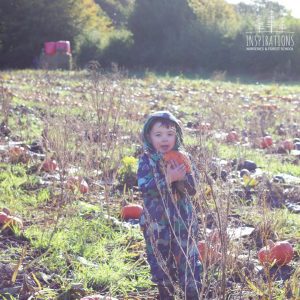
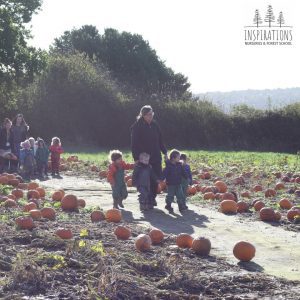
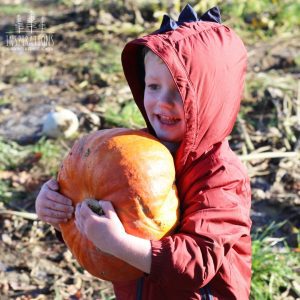
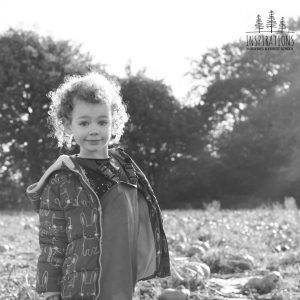
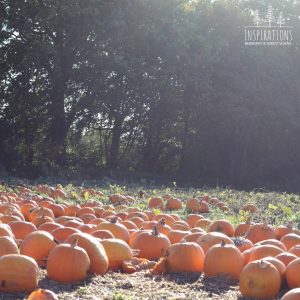
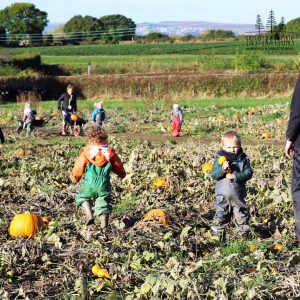
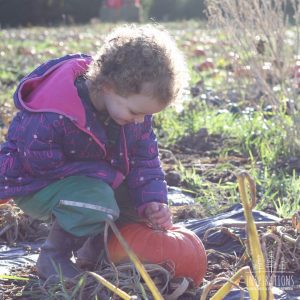
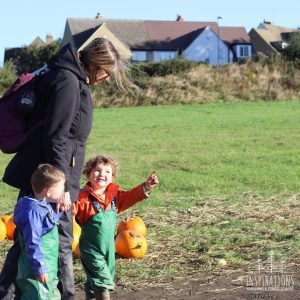
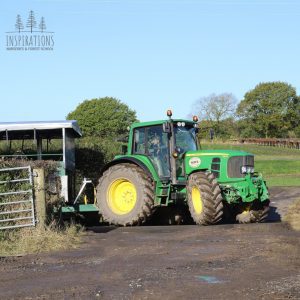
Happy Halloween!
-Nathalie
Settling into our Baby Rooms
In today's blog we take a look at the settling in process and key person allocations across our two baby rooms- The Hedgehog Room and The Butterfly room. There are many benefits to your child starting a childcare setting, it's a chance for them to develop additional social skills, learn new skills and gain independence away from their main carers. For this reason we ensure we create close bonds between our staff and your family, particularly between your child and their key person. But what is a key person?
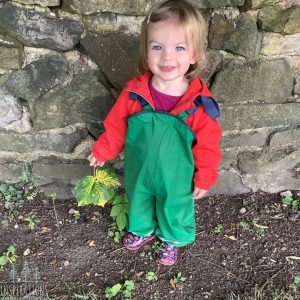 The importance of relationships
The importance of relationships
'Key person' is a term used a lot in nurseries and it a vital part of our nurturing setting at inspirations. The statutory frameworks (2017) states;
“Each child must be assigned a key person. Providers must inform parents and/or carers of the name of the key person, and explain their role, when a child starts attending a setting. Children thrive from being a part of loving and secure relationships. Children learn best when they are healthy, safe and secure, when their individual needs are met, and when they have positive relationships with the adults caring for them”.
Prior to starting Inspirations, we offer a home visit, a chance for your key person to visit a few weeks before your child's start date. This is an opportunity to tell us all about your child but also a chance for you to ask questions. This will be followed by a series of settling in visits at our setting as follows-
- 1 hour with parent or carer
- 1 hour on their own
- Longer visit including Lunch or sleep
- Last visit including lunch and sleep
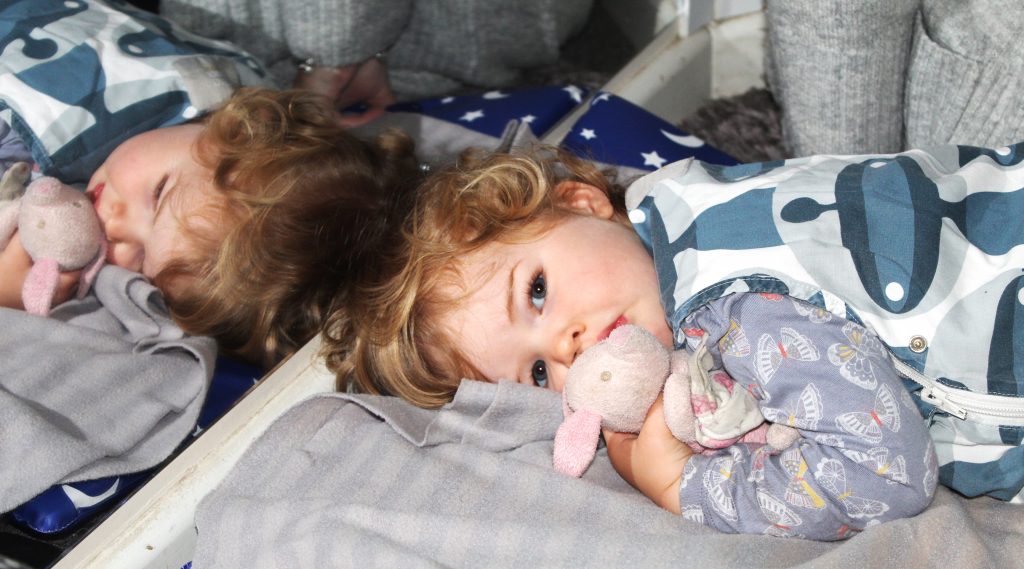
During the first session, the key person will spend time with the child and the parent; a general 'getting to know you' session. We will ask you to complete a ‘starting points’ sheet to show us what your child is currently doing and how we can meet their needs. We will also discuss sleep patterns, eating and conversations about your families and any festivals celebrated, religions or dietary requirements. By following your child’s individual routine will help them feel safe and secure, and create a home away from home. 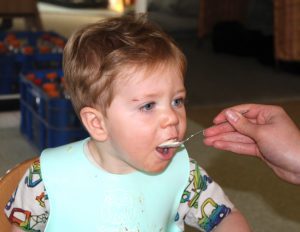 We are proud of our strong partnerships with parents and ensure we welcome you and your family into our Nursery and Forest School community.
We are proud of our strong partnerships with parents and ensure we welcome you and your family into our Nursery and Forest School community.
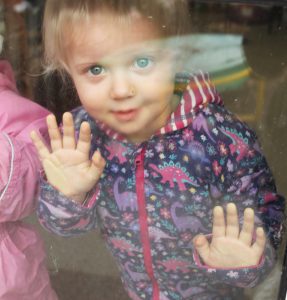 Positive relationships is one of the overarching principles of the EYFS. It’s important to form positive relationships with the children and role model the importance of 'making relationships' with others too.
Positive relationships is one of the overarching principles of the EYFS. It’s important to form positive relationships with the children and role model the importance of 'making relationships' with others too.
The Importance of Attachment
The attachment theory originates from the work of John Bowlby (1958). He wanted to look more in depth at the importance of the child’s relationship with their mother in terms of their social, emotional and cognitive development. He formulated his theory surrounding a link between early infant separation with the mother and later mental health problems. Bowlby proposed that attachment with a caregiver provides safety and security for an infant. Within his theory, it is suggested that between 0-5 years old is a critical period of time to form attachments with care givers and forms a secure base for children when exploring the world. Attachments are emotional bonds that children develop with parents and other carers such as their key person at nursery. It is thought that children who have secure attachments cry less when separated, they engage in more pretend play and have a strong sense of who they are. The settling in visits we offer are to support the attachment theory and help the children start to form those attachments with their key person and even the other adults and children in the room.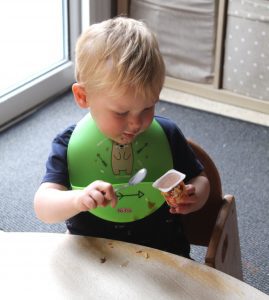
The home visit and the first visit with the parent is vital to show the children that the parent trusts this new person in their life and they can role model a positive relationship through talking about your children.
If you have any other questions about our baby room settings please don't hesitate to get in 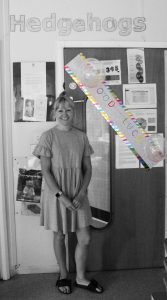 touch at 0113 2585800 then follow the extension to either the Office, The Butterflies or The Hedgehogs.
touch at 0113 2585800 then follow the extension to either the Office, The Butterflies or The Hedgehogs.
This week we are excited to announce Sophie will be our new Room Leader of The Hedgehogs room, as Tara moves on to her new role as Training Manager after 17 years of running the Baby Room. We wish them both well in their exciting new roles within our Nursery.
Seekers of Meaning
New Video
Over the last few weeks I have been filming the children as they explore the Art Studio. To read more about our Art studio you can go back to last weeks blog.
The children's current shared interest is construction and building houses from clay, bricks, sticks and blocks. Some of that is captured in our brand new video that you can watch here-
https://www.yout ube.com/watch?v=4-59qb9GgdQ
ube.com/watch?v=4-59qb9GgdQ
Pre-School at Adel
Are you longing to peer into the future, catch a glimpse of normality resuming once again? I think we can agree this is going on longer than we initially imagined, but here we are. We are still in this together, and we hope during these times of increased social distancing you can still maintain social connections online, just like those in this news story that brought a smile to our faces. https://www.bbc.co.uk/news/av/uk-55732174
So we start this blog by asking, how are you, and what are you grateful for? We are grateful to have our Inspirations Nurseries families that continue to bring a sense of community.
Last week our blog focused on our Horsforth Pre-School, so this week we hand over to Deborah our manager at Adel to talk about our other Inspirations Nursery only 10 minutes away.
Welcome to Adel
At Adel we take children from the age of three, to starting school. Like Horsforth, we follow the Reggio Emilia Approach, which comprises of loose parts, mirrors and reflection, natural resources and investigation of up-cycled and recycled trinkets and materials.



Our setting is within the grounds of Adel St John the Baptist Primary School which is surrounded by beautiful woods and trees. There’s a well-equipped natural garden with a climbing wall, workbench, piano, mud kitchen and bikes. We have the use of the super large playing field and the conservation area which we use twice weekly for Forest School.
Our planning involves the outdoors as much as indoors and the children can choose where they would like to play.
Inside we have a very spacious room with areas to promote learning wherever the children choose to be.
Set Out to Inspire
The aim of our pre-school environments is to inspire the children to want to explore and learn. We have a maths, literacy, construction, small world, home and creative area of which all have natural resources for the children to explore and a wide range of loose parts to promote maths, communication, imagination and problem solving.



After observing the children’s common interests, we plan as a team to add resources and challenges to the areas and talk to the children about what they know and what they want to know, and how they would like to learn.
The children’s key worker also plans for their key children’s individual interests to support and provide opportunities to progress in all areas of development. As we are a pre-school we encourage independence and all skills necessary for school readiness, such as being able to express their own needs, listen to others and stories, separate from their carer, independent self-care, and understanding of British Values which encourages respect for ourselves and others.
Phonic, Spanish and Creativity
We teach phonics which is differentiated to meet and challenge each child’s individual ability. At Adel we also introduce Spanish to the children; an introduction to languages through songs, games and activities promoting enthusiasm with learning languages later in school. We also have our own Atelierista who comes in 3 times a week to deepen creative projects in smaller groups.

Throughout both our Pre-School settings we support your children in becoming strong independent learners, enabling them to think critically and outside the box. Their use of imagination and their understanding of the world, alongside their ability to problem solve, will stand them out from the crowd and give them a head start in life.
If you love our nursery as much as we do, have any questions or are interested in joining us check out more on the website here-http://simonr30.sg-host.com/our-settings/adel/ or contact- deborah@inspirationsnurseries.co.uk
